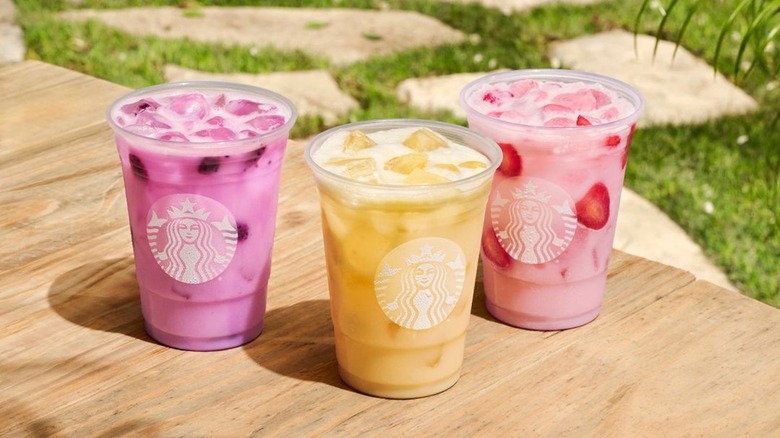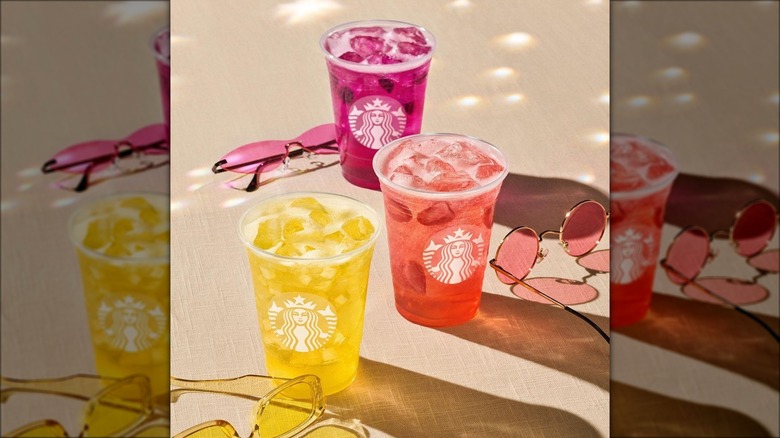Starbucks Is Facing Legal Trouble Over Missing Fruit In Its Refreshers
When a customer places an order for a Mango, Passionfruit, or Acai Refresher, there is an assumption that the beverage contains those respective ingredients. However, at Starbucks, this may not be the case. In a ruling on Starbucks' motion to dismiss in Komunis et al. v. Starbucks Corp, U.S. District Judge John Cronan found that there is sufficient evidence to allow this false and deceptive practice claim to move forward.
In August 2022, plaintiff Joan Kominis filed a class action lawsuit alleging that the Starbucks Mango, Passionfruit, and Acai Refreshers contained none of the named fruit in the menu description. Through the claim, Kominis asserted that the fruit-based iced drinks only had water, grape juice, and sugar instead of the advertised fruits. Using specific fruit terms, Starbucks presented consumers with the anticipation and assumption that the beverage contained those ingredients, not just a flavorful facsimile.
The recent ruling from Judge Cronan addressed Starbucks' dismissal motion. Specifically, the judge commented that consumers had a reasonable expectation that the fruit terms represent both a flavor and the actual ingredient. They are not generic labels that can be construed broadly. Although those claims stand, the judge did dismiss the intentional fraud element of the class action lawsuit.
In a statement to Daily Meal, Starbucks said, "The allegations in the complaint are inaccurate and without merit. We look forward to defending ourselves against these claims." The class action lawsuit remains pending in U.S. District Court.
Can Starbucks prevail in the Refreshers lawsuit?
False and deceptive practices lawsuits, like Taco Bell Mexican Pizza's sparse ingredients, are spiking in the food world. Consumers want brands to deliver on an ingredient and flavor promise. Although some wonder if they are money grab claims, the Starbucks Refreshers lawsuit puts term specificity on trial. If fruit names entice an order, does that specific ingredient need to be in the cup?
While Starbucks looks to vigorously defend itself against the class action lawsuit, the issue revolves around actual fruit ingredients driving a consumer's purchase. If consumers expect that mango pieces, not just fruit flavor, should be in every beverage, the plaintiff has an argument. Starbucks asserted that baristas can explain the Refreshers and its components to avoid any consumer confusion. But is it the consumers' responsibility to take that additional step?
Under false and deceptive practices claims, the burden falls on the plaintiff to prove the claim. Whether the menu board photo appears different than the drink served remains to be seen. When guests order a matcha latte, matcha is assumed to be a key component. Otherwise, it could be any latte in the glass. Starbucks might have to rethink its drink recipe if the plaintiff can prove that fruit is unique to these beverages and is a required ingredient.
This pending lawsuit shakes up another chapter in the food lawsuit landscape. Who will sip the sweet taste of victory is to be determined.

